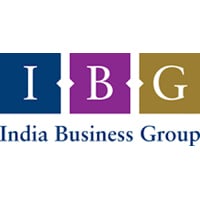
India Teams 2019

| The Hongkong and Shanghai Banking Corporation (HSBC) India








The Hongkong and Shanghai Banking Corporation (HSBC) India
How would you introduce the legal team and its role within the organisation? HSBC is one of the world’s largest international banking and financial services organisations with origins in India dating back more than 150 years. HSBC serves customers worldwide from offices in 65 countries, through its four global businesses: retail banking and wealth management, commercial banking, global banking and markets, and global private banking. HSBC aims to be where the growth is, connecting customers to opportunities, enabling businesses to thrive and economies to prosper, and ultimately helping people to fulfil their hopes and realise their ambitions. The HSBC India legal team is led by Amit Moghay, general counsel. Moghay’s philosophy towards both work and life is to decide two to three things in life that are most important for a person. Once identified, one needs to ensure that these important things are not compromised in any way. These important things may change at different stages of a person’s life; but while juggling the various things that life throws at us, we need to ensure that the most important things are never dropped! The team, which is based out of Mumbai and Noida, tries to imbibe this philosophy in their day to day personal and professional lives. The legal team in India supports the businesses across retail banking and wealth management, commercial banking and global banking and markets. The team has been a key partner and contributor to HSBC India’s growth commitment to the HSBC Group. The expertise in the team ranges from being proficient in general retail and corporate banking laws and being subject matter experts in transaction services, trade finance, custody services, investment banking, asset management, data privacy laws and litigation. The team further supports the needs of the HSBC overseas offices, for lending to entities within India. The team ensures that the initiatives of HSBC in India are aligned with the nuances under the current legal framework including Companies Act 2013, consumer protection, succession, banking, competition and data privacy laws, TRAI regulations, and the Insolvency and Bankruptcy Code 2016.
HSBC’s values define who we are as an organisation and the legal team in India believes in and practices these core values of HSBC by standing firm for what is right, delivering on commitments, being resilient and trustworthy and treating customers fairly! How does the team contribute towards
the strategic decision making process of the
company? Being the risk stewards of the organisation, the team plays a strong and independent role of influence at the executive committee/senior management and across different levels of the organisation, to ensure, that the reputation of HSBC is protected, clients are treated fairly and business is done in a responsible, ethical and sustainable manner. This influence is established by a culture of openness and courage, being connected with all stakeholders, complimented with a solution oriented collaboration with business teams. What qualities does the team have that allows it to deliver an excellent legal service? The legal team has a diverse pool of resources with prior experience from other banks and financial institutions, law firms, and international work experience which brings a wider set of ideas and experiences to the table. Differing perspectives and views are valued, encouraged and are openly discussed. The team is also encouraged to assert their independent views in different decision making forums. There is a focus on thinking “out of the box” and a solution oriented partnership with the business. The team has consistently demonstrated the expertise to address the unique needs of each business providing suitable and cost-effective solutions, and at the same time constantly endeavouring to minimise the risk. There is a continuous engagement and collaboration with various stakeholders on training sessions to help them better understand the challenges and underlying risk. Given the dynamic landscape of laws and legislations in India and with areas such as data privacy, competition law and insolvency laws gaining prominence, there is a constant need to be able to adapt and keep abreast with all such legislations. The team has a shown great resilience and adaptability by keeping abreast of all such legislative changes. They have been proactive in identifying and addressing data privacy and competition law related issues and requirements thereby helping the organisation in complying with them. This has been done by first analysing the changing domestic and international landscape in these areas and assessing their impact on current processes. Second by taking steps towards understanding the requirements even at the stage of the laws being in a draft form. Third, by rolling out policies and procedures around these requirements and last by conducting trainings to help businesses and functions understand their roles and responsibilities in terms of the changing landscape. How else do these qualities aid the company? The legal team’s adaptability, flexibility and resourcefulness is demonstrated by way of working on several diverse initiatives and providing support on key projects across a variety of fields from inception to execution and majority of all such work is done in-house, which also leads to substantial cost savings for the organisation. The legal team has over the years developed robust processes and procedures to fulfil challenging goals and has been instrumental in standardising and simplifying documentation from a perspective of ease of doing business and maintaining customer focus. How would you describe the development of the future in-house role? With changing times, the role of an in house lawyer has undergone a substantial change. The role has metamorphosed from that of a person who merely looked at proposals from a legal perspective to a person who is expected to review every proposal holistically keeping in mind concerns such as cross border impact, regulatory challenges, reputational risk etc. In fact, in addition to considering whether the proposal is acceptable from a legal perspective, an in house lawyer is also required to consider whether the proposal is “the right thing to do”. This is an expectation by the organisation as well as the community at large. Is there anything else you would like to add? HSBC India has won three big accolades in the last eight months. It was ranked fourth “Most Respected Company” by Business World magazine followed by the “Best Companies to Work For” by Business Today magazine – the only foreign bank to win both these recognitions, and third for being the “Best Foreign Bank” in a survey conducted by Financial Express magazine.